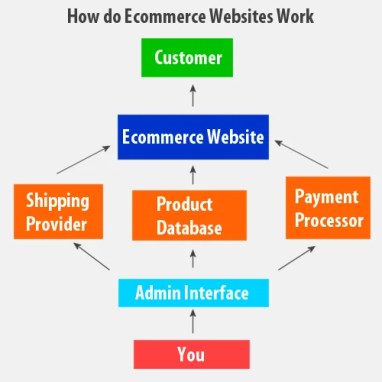Over the last few years, the eCommerce model has been giving brick-and-mortar retailers a run for their money. A recent forecast estimates the eCommerce market will surpass $2 trillion in revenue for 2017 and increase its worth to $6.7 trillion by 2020. The eCommerce market has gained such a massive following that companies from different industries can no longer ignore it. In fact, the total number of online shoppers in the US is projected to rise to 224 million in 2019. By 2020, around 168.7 million mobile users will have made at least one purchase from an online store.
Number of digital shoppers in the United States from 2014 to 2019 (in millions)
The great thing about the eCommerce platform is that it gives start-up entrepreneurs immediate entry into the global marketplace. At present, only 28% of small businesses in the U.S. are selling their products online. For a budding entrepreneur, there is still a wide window to get started and establish an online brand. Once you decide to give it a go, the only question left is, should you buy an existing eCommerce website or start from scratch? The following insights could help you come to a resolution.
Buying an Existing eCommerce Business
The Pros
An established eCommerce site has already proven itself profitable. Buying one in your target niche lets you take over an operation that has already generated cash flow. Of course, you would have to assess their operation metrics and financial history first. But the good thing is that it has already overcome the challenges usually encountered by start-ups. You do not have to invest time and money into keyword research, advertising, site development, finding suppliers, SEO services, and others. With a proven business model, your customer base, supplier relationships, software codes, and traffic will already be organized.
Acquiring an existing eCommerce site allows you to take advantage of opportunities the seller may have overlooked. This gives you a strategic edge in growing the business and increasing your profits. If you already own an eCommerce business, buying another site also increases your cross selling and cross promotion capabilities. You get to expand your reach by gaining access to additional traffic and customers.
The Cons
Buying an existing eCommerce business also has its downside. Let’s start with the operative word “buy,” which means you will likely need significant upfront capital. Convenience comes with a price, especially if you are eyeing a well-performing site. Next, finding the right online business to purchase that is reasonably successful may take some time. If you do find one, expect to inherit some errors made by the previous owner, such as lack of customer service, poor quality content and backlinks, soured relationships with suppliers, to name a few.
Starting Your Own Online Business
The Pros

One of the many things that attract entrepreneurs to starting their own eCommerce site is the low startup costs required. With the help of the internet, you can purchase a domain and obtain hosting for less than $100 per year. Outsourcing website development, web design, content creation, and basic SEO services can be achieved for under $300. A setup for a small business—with catalog and light traffic—through a popular eCommerce platform will only cost you around $2,000.
Another advantage when it comes to setting up your own eCommerce site is you gain full control over your products and services. For instance, you can decide to avoid managing inventory or shipping through drop shipping. You choose which direction to take the business and handle SEO, monetization, and customer service using your own strategies. And if your site becomes a success, you can sell it for a lump sum.
The Cons
A newly set up eCommerce business will start off with no traffic or customers. Marketing your brand and bringing traffic to your site can take a lot of work and money. You may need to invest in social media management and search engine marketing just to get the word out. You could spend several months building your eCommerce sites only to find that none of them end up being profitable. Another disadvantage is that it is a highly competitive market. It can be exhausting just to think of ways to stand out from the rest.
New and experienced entrepreneurs should realize that neither option is better than the other, as both can provide significant returns on investment. In the end, your choice may depend on the time and attention you are willing to invest, how much money you are willing to risk, and the level of experience you have. The eCommerce market has the potential to become a huge boon for a business, given that every detail of the business is monitored closely.











 WebProNews is an iEntry Publication
WebProNews is an iEntry Publication